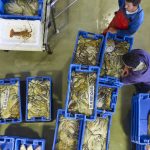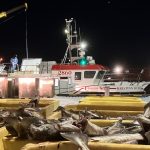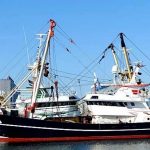The fishing companies of South Africa are not happy with the authority’s decision to reduce the effective allocation of long-term fishing rights to the formal fishing industry.
Mustaq Brey, the chairman of Oceana, said in the company’s annual report, that if the access rights were being curbed then it would a tragedy for the investors in fishing industry. According to him many fishing companies had set up large capital investments with state-of-the-art facilities and boats. He inquired, “If the rights are reduce then what would be the future of those facilities?” He added that if the quotas being given to new entrants who do not have money to process their fishing rights then it will just become paper quota holders. As per industry sources many small quotas holders sold their quotas to big companies last year due to unavailability of money to process it. Carol Moses, a spokesperson for the Marine and Coastal Management division in the environmental affairs department, opined that the draft policy for the transfer of commercial fishing rights has laid down certain criteria and requirements in the period following the allocation of long-term rights. Commenting on this Brey said that the total allowable catch (TAC) should be set at “objectively justifiable levels,” so that it could support the industry, which contributed a great deal to the country’s economy and generates large employment opportunities. He suggests that there should be a balance between the formal industry, small-scale operators, subsistence fishermen and recreational catches. It would strengthen the long-term sustainability and investment. Moses said the draft policy, however, do not support the transfer subsistence and small-scale commercial fishing rights, fish processing establishment or marine aquaculture rights.








